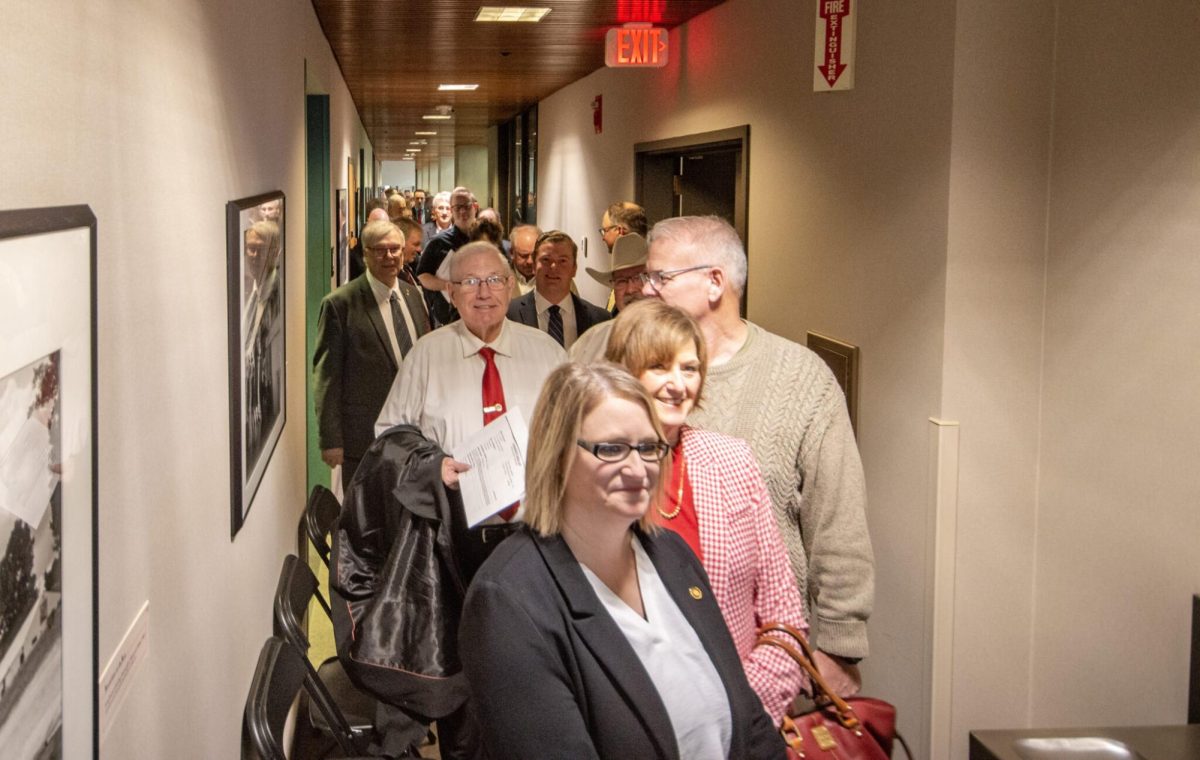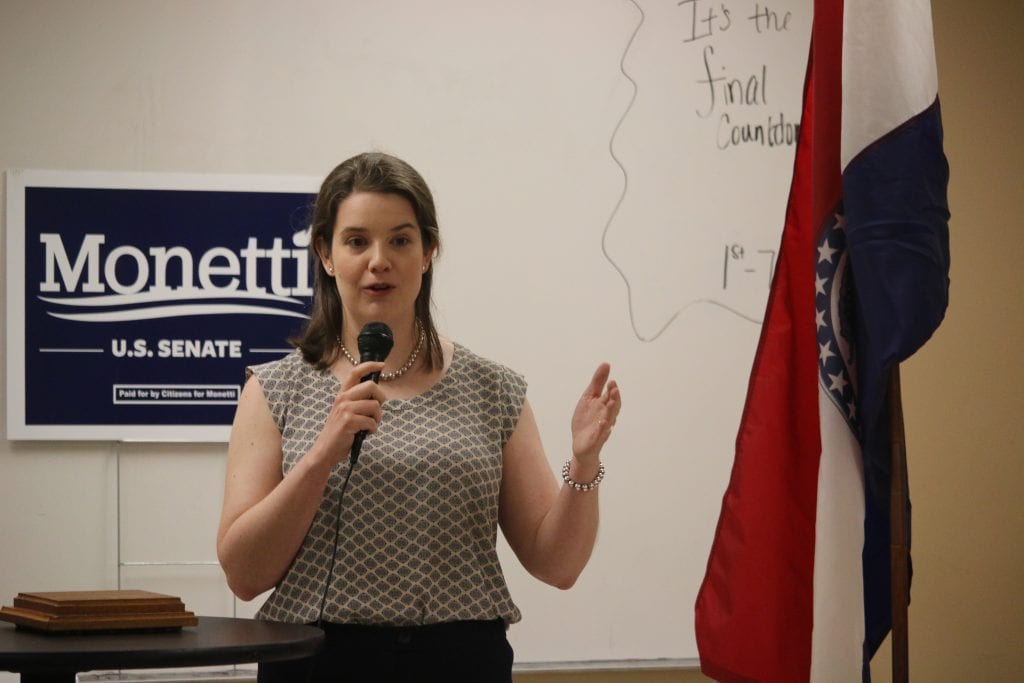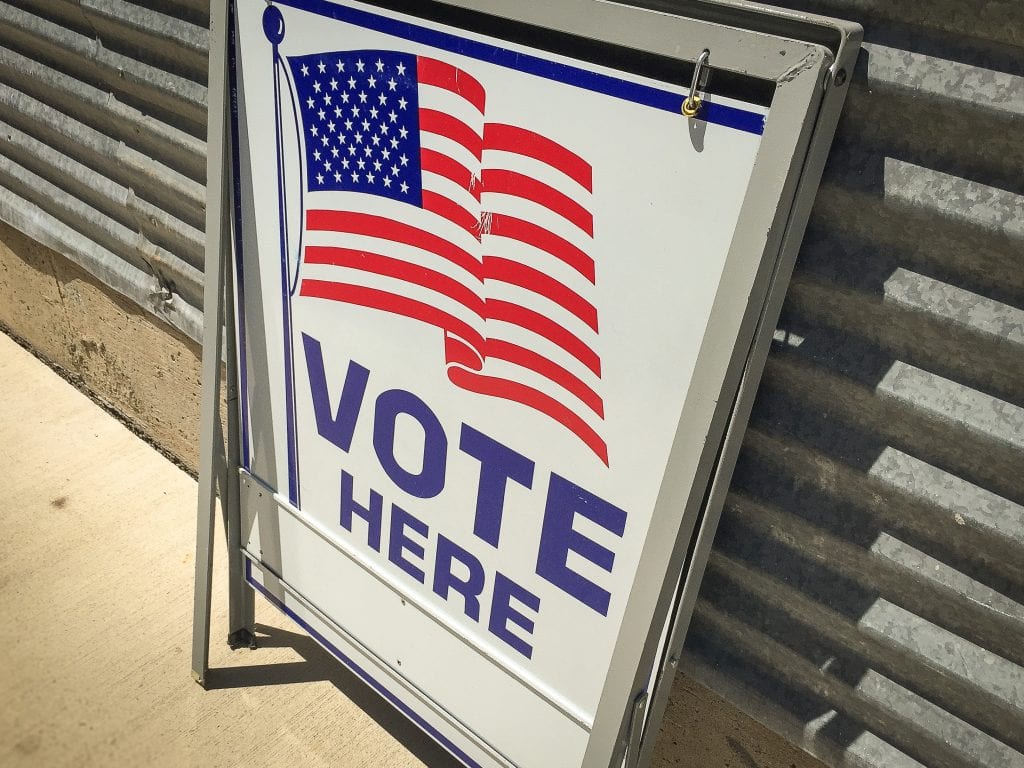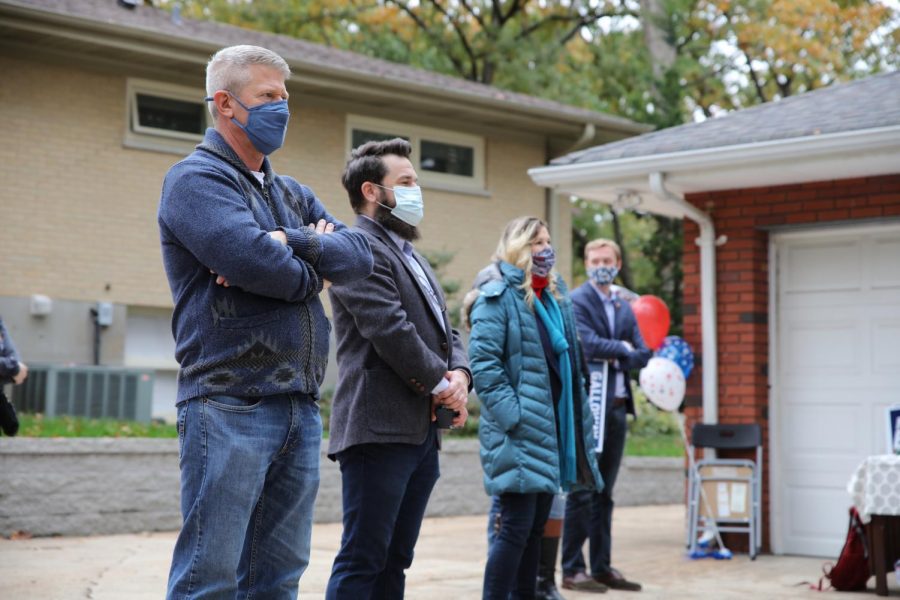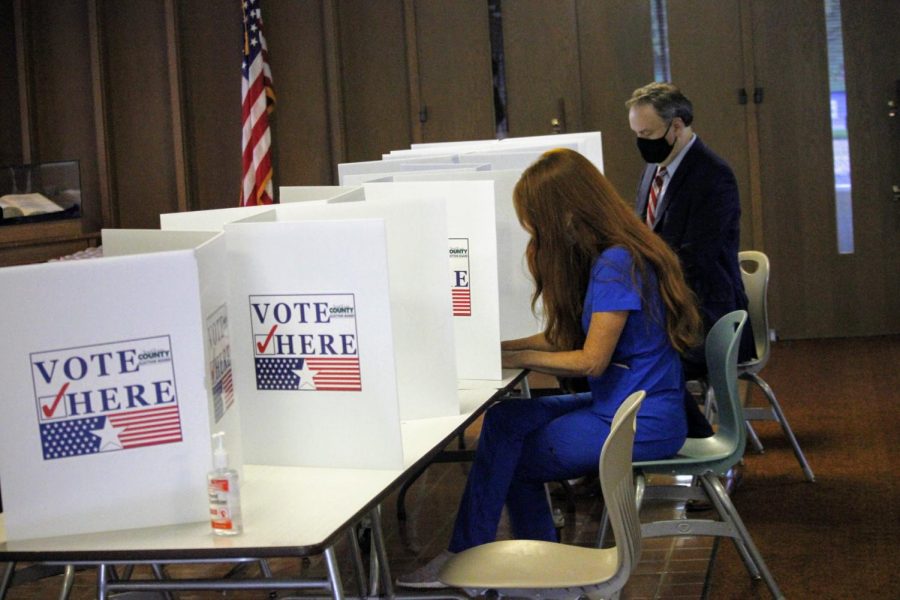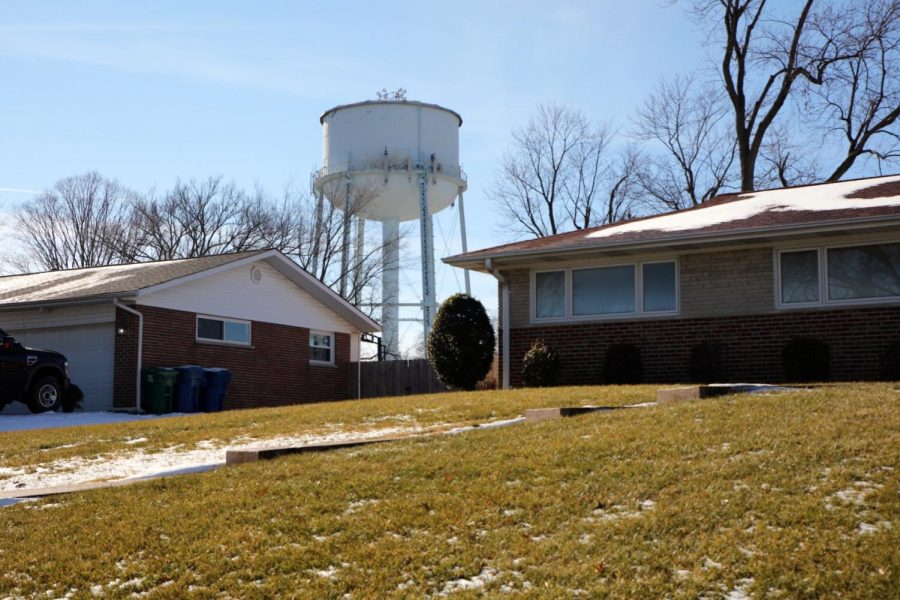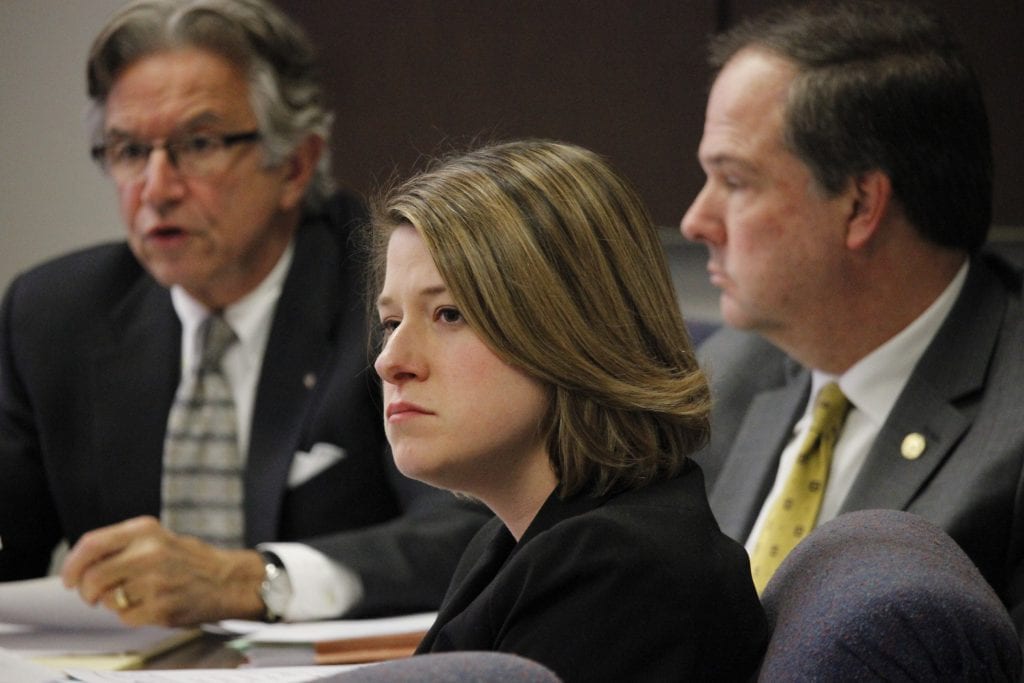State representatives Michael O’Donnell and Jim Murphy held a joint town hall at Royale Orleans last month to discuss the highlights and lowlights of the 2021 legislative session from their perspectives.
O’Donnell, of the 95th District, and Murphy are both Republicans who represent different areas of Oakville in Jefferson City. Murphy’s 94th District also includes Green Park and parts of Concord and Lemay. They were both elected to their first terms in 2018 and re-elected in 2020.
As part of the Republican supermajority that runs the Legislature, both legislators saw success with their bills this year.
The town hall drew about 20 people to Royale Orleans in Lemay.
The regular 2021 legislative session ended May 14.
Aside from the appropriations bills, representatives passed a total of 21 bills out of the House this year, including House Bill 734, sponsored by O’Donnell. The legislation creates a funding stream that allows public utility companies like Ameren to borrow money at AAA bond ratings, which lowers their borrowing costs.
“When the Public Service Commission looks at the rate case that determines what you actually pay on your power bill, they look at the fact that there’s a lower cost of borrowing for utilities and they can pass those savings onto you,” said O’Donnell.
O’Donnell also sponsored a House Joint Resolution that, pending voter approval, would expand what the state treasurer’s office can invest in. Because it is something that would have to be put into the Missouri Constitution, that initiative has to go to voters for approval, although there is no indication of when it will be on the ballot.
“Both the HJR that I worked on and the utilities bill passed the House with one no vote, and they both passed the Senate without any no votes. Very bipartisan issues,” said O’Donnell. “I promised to bring my background in finance to leverage (in the House) … and I feel like I was able to do that this time.”
Several pieces of legislation this year took aim at local public-health orders put in place because of the pandemic. Murphy sponsored one of the most successful of those bills, House Bill 75, which would have limited public-health closures to no more than 15 days. Any further extensions beyond 15 days would have to be approved by the county or city’s governing body.
HB 75 did not make it out of the House, but a similar piece of legislation, House Bill 271 sponsored by John Wiemann, R-O’Fallon, passed both houses.
The legislation allows officials to issue public-health orders like those seen during the COVID-19 pandemic in states of emergency for 30 days, and 21 days in other cases, unless the local governing body votes to extend.
“I have no problem with health departments propagating rules and taking care of our health. That’s their job. … Our job is to protect your liberty. And what got trampled in all of this was liberty,” said Murphy. “They were making decisions on health alone. They were making decisions based on science, that as we’ve seen change day to day, week to week. … He (St. Louis County Executive Sam Page) was playing dictator. That’s all there was to it.”
Royale Orleans owner Forrest Miller praised Murphy for his commitment to passing restrictions on local health officials. Event centers like Royale Orleans have been closed or restricted from holding their usual large events for more than a year, until last month.
“We have struggled and we have been in dire straits for help while the community across the river was wide open — Jefferson County, St. Charles County, wide open. … Before the session started, I talked with Jim, I said this is a mess. … He said he’d do his best to change the law. … Last week, it all passed,” said Miller. “I thank him. He didn’t have to do that. He worked hard and he made a difference, and we made a difference. … Soon as they knew the bill was going to pass, Mr. Page decided to release all the rules. That’s the way he played the game every day.”
One amendment to the legislation that was not in Murphy’s original bill will allow businesses that had to shut down due to health orders to get a refund on their property taxes for the period of time that they were closed. That was a suggestion of Sen. Andrew Koenig, R-Manchester, who also represents Sunset Hills.
The Legislature also passed a Wayfair Bill this year, also sponsored by Koenig. The legislation collects sales tax on online purchases made through vendors with a physical presence in Missouri.
“The bill we passed was an answer. I don’t think it was the best answer we could have come to. … They’re allowing us to collect tax from any website outside the state of Missouri who sells something within the state of Missouri — has to charge sales tax,” said Murphy. “I, to this day, question who are they and how are we gonna get the money if they do? … We will get it from Amazon, we will get it from eBay, people like that, as a result of this bill and that’s a plus. But we were getting it from most of them anyways.”
The two legislators did not see eye to eye on a gas tax that was passed this year. O’Donnell voted in favor of the legislation that would increase Missouri’s fuel tax by 2.5 cents each year, until it reaches 29.5 cents by 2025, up from 17 cents today. The money would be used to maintain the state’s road and bridges. Murphy voted against the bill.
“Do we need to fix our roads? Absolutely. We need to fund our highways. I just didn’t believe a tax was the way to do it. Right now the state of Missouri is awash with funds coming in from Washington, D.C. … I don’t know why we couldn’t just fund the roads without putting the burden on our taxpayers,” Murphy said. “I think we need to fund our roads and I think we had the money to do it, and I didn’t think we needed a tax to do it.”
Missouri voters have struck down a gas tax three times in the past at the ballot box, most recently in 2018 with a confusingly worded proposition that would have given money to the Missouri State Highway Patrol instead of the Missouri Department of Transportation.
“Our roads are not in great shape, and the reality is in order to fix them … we’re gonna need to do something about our roads. And I looked at how the people in my district voted (on the most recent gas tax) … this one wasn’t easy. In Oakville … it’s split,” said O’Donnell on why he voted for the legislation. “I said, OK, I need to try to see if I can’t represent both sides of that issue.”
The legislation does include a rebate program. Drivers would be able to apply with the Department of Revenue once a year to receive a refund for the tax.
One question submitted via comment card asked if either legislator was aware of any state or private agency that had agreed to house migrants from the border. Neither legislator was aware of any such efforts.
Another question asked about both legislators’ voting record on the prescription drug monitoring program. Up until the Legislature approved a bill creating a “PDMP” last month, Missouri was the only state in the country without a statewide registry to monitor prescriptions. O’Donnell voted in favor of the legislation, while Murphy voted against it.
St. Louis County operates its own PDMP that, in the absence of a statewide registry, has become the default one for nearly the entire state.
“I remember first telling a group of Republicans that I voted for this, and at first they were up in arms … but then they were shocked to find they were living under a PDMP regime already. I voted for this because of privacy concerns,” said O’Donnell. “This has a feature that requires that the data kept in the database is discarded after three years.”
But Murphy felt that the statewide PDMP was no better.
“I voted against it not because I don’t think we need PDMP — we have it. Right now 90 percent of the state is covered under the St. Louis plan, which isn’t a great plan. This one I didn’t think was any better,” said Murphy. “In fact, I thought this one was worse because it turned the database where all of this data is kept over to a private company. … The rest of it was fine.”

























